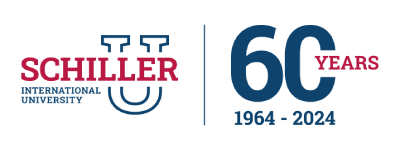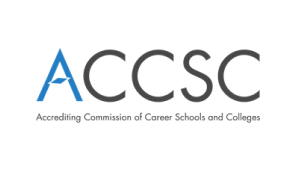Your first job in computer science will always stay with you. It is the one that transforms your studies into something tangible. This is the stage where the code you write, the systems you test, or the data you analyze start to make an impact.
Computer science remains one of the most secure and opportunity-rich fields worldwide. From 2025 onwards, roles in technology are expected to keep expanding faster than most industries. That means companies are not just hiring experts; they want to hire learners, problem solvers, and adaptable thinkers. That could be you.
Why Start Your Career in Computer Science
Compared to many fields, computer science provides stability, which is rare nowadays. What is special about this degree is that it offers a long runway for growth, learning, and global mobility.
- Global demand is rising: Technology now underpins nearly every industry. The U.S. Bureau of Labor Statistics expects computer and information technology (IT) occupations to grow much faster than average between 2024 and 2034.
- You can start small and grow big: Entry-level technical roles are built for beginners. Employers value curiosity, logic, and a willingness to learn even more than years of experience.
- Digital transformation is everywhere: From finance and healthcare to education and design, every organization needs people who understand how technology connects systems and people.
- Transferable skills: The ability to think logically, solve problems, and build digital solutions makes you employable across borders and industries.
- Real progression potential: Many leaders in data, artificial intelligence (AI), and cybersecurity began as junior developers or IT support specialists. The early skills you acquire now become your long-term advantage.
Top 10 Entry-Level Computer Science Jobs
The first steps in your technology career do not have to be perfect. It just has to begin. Your goal should be to search for entry-level paths that lead to learning, growth, and confidence. computer science jobs with the best salaries let you explore your curiosity, learn adaptability, and build a solid foundation in computer science fundamentals.
1. Software Developer
You will design, test, and maintain applications that power everyday life. Most developers begin by assisting senior engineers and writing code for small components before moving on to larger projects.
- Average salary: $131,450 per year (Source: The U.S. Bureau of Labor Statistics)
- Career growth: With experience, you can move into full-stack development, software architecture, or AI and automation design.
2. Web Developer
Web developers build and maintain websites and online applications. You will often start by working on the front end (the parts users see) before advancing to back-end or full-stack roles.
- Average salary: $95,380 per year (Source: The U.S. Bureau of Labor Statistics)
- Career growth: Opportunities in UI/UX design, full-stack development, or digital product management.
3. Data Analyst
You will collect, clean, and interpret data to help organizations make better decisions. This role blends technical skills with business understanding and is ideal if you enjoy finding patterns and meaning in numbers.
- Average salary: $84,474 per year (Source: Indeed)
- Career growth: Can lead to data science, business intelligence, or data engineering roles.
4. Systems Administrator
Systems administrators (SysAdmins) keep an organization’s IT infrastructure running. You will manage servers, troubleshoot network issues, and ensure systems remain secure and efficient.
- Average salary: $92,657 per year (Source: Indeed)
- Career growth: With experience, you can progress into network engineering or cloud infrastructure management.
5. Quality Assurance (QA) Tester
QA testers ensure software runs smoothly before reaching users. You will identify bugs, test new features, and collaborate with developers to maintain high-quality standards.
- Average salary: $131,450 per year (Source: The U.S. Bureau of Labor Statistics)
- Career growth: You can move into QA automation, software engineering, or product testing leadership.
6. IT Support Specialist
As an IT support specialist, you will be the first line of help for users facing technical issues. It is an excellent entry point for building technical confidence and customer communication skills.
- Average salary: $61,550 per year (Source: The U.S. Bureau of Labor Statistics)
- Career growth: Many move into systems administration, IT security, or network management roles.
7. Network Engineer
Network engineers design and maintain communication systems that connect computers and devices. You will start by supporting existing networks and learning to monitor and optimize performance.
- Average salary: $109,882 per year (Source: Indeed)
- Career growth: Opportunities in cloud networking, infrastructure security, or IT architecture.
8. Cybersecurity Analyst
Cybersecurity analysts protect systems from digital threats. This role is growing rapidly as data breaches and cyberattacks become more common worldwide.
- Average salary: $105,908 per year (Source: Indeed)
- Career growth: Progress into cybersecurity engineering, penetration testing, or information security management.
9. Database Administrator (DBA)
DBAs manage and organize data systems, ensuring that information is secure, accessible, and consistent. It is ideal if you enjoy structure, accuracy, and working with data-heavy systems.
- Average salary: $123,100 per year (Source: The U.S. Bureau of Labor Statistics)
- Career growth: Can lead to data architecture, analytics, or cloud database management.
10. UX/UI Designer
UX/UI designers make technology feel human. They focus on how users interact with software, combining creativity and logic to design intuitive experiences.
- Average salary: $112,722 per year (Source: Indeed)
- Career growth: Paths into product design, user research, or creative direction.
The best entry-level computer science jobs share one thing: they are built for learning. Whether you start in coding, analysis, or design, each role gives you a foundation to build confidence, develop expertise, and move toward global opportunities in tech.
Skills That Make You Employable
When you are just starting out, it is easy to assume employers only want people with experience. The truth is, employers are seeking something deeper: practical skills, curiosity, and the ability to keep learning. You do not have to know everything before applying. You just need to show that you can grow into the role.
Essential Technical Skills
These are the building blocks of most entry-level computer science jobs. You will already recognize many from your degree, but it helps to practice them through side projects, internships, or even personal experiments.
- Python: The language most used for automation, data analysis, and AI. Simple, powerful, and always in demand.
- SQL: The foundation of data management. Businesses depend on people who can query and organize data clearly.
- JavaScript: The heart of web development and user interaction. Knowing this opens doors to front-end and full-stack roles.
- Cloud Computing: Familiarity with AWS, Azure, or Google Cloud shows that you understand how modern systems are built and scaled.
- AI and Machine Learning Basics: Even an introductory understanding of AI models or data training can make your profile stand out.
Soft Skills That Set You Apart
Technical knowledge will get you in the door. Soft and interpersonal skills are what will keep you in that position and enable you to grow in it.
- Problem-Solving: Every tech role exists to solve something, a bug, a system issue, or a user problem. Employers value clear, structured thinkers.
- Teamwork: Even remote teams rely on collaboration. You will often work with designers, analysts, and non-technical colleagues.
- Adaptability: Technology changes fast. Being open to new tools and challenges shows employers you can keep pace.
- Communication: The ability to explain complex ideas simply is rare and powerful. It turns technical work into impact.
- Cross-Cultural Understanding: In global companies, you will work across time zones and cultures. The importance of empathy and respect cannot be overstated.
Learn Through Doing
One of the best ways to build these skills is by working on real projects, even small ones count. Contribute to open-source code, participate in a hackathon, or create a simple web app. These experiences show initiative and problem-solving far better than a list of courses ever could. Internships, freelance work, and project-based learning serve as bridges between theory and employability. They give you something tangible to talk about in interviews and show employers that you can translate learning into results.
It is also why many global universities now focus on learning by doing. At Schiller International University, for example, computer science students work on industry-aligned projects from their first semester, not after graduation. This approach helps graduates step into global tech roles with confidence and real-world experience.
How to Get Hired Faster
Getting your first job in tech is not just about having a degree. It is about showing employers what you can do with what you have learned. Most graduates underestimate how much they have to offer. Small projects, group work, or even a class assignment can become part of your story if you frame it right.
1. Build a Portfolio That Tells a Story
Your portfolio is proof of how you think. Start small: a personal website, a GitHub profile, or a few code samples from class. Highlight what problem you solved, what tools you used, and what you learned from it.
Employers love seeing initiative. Even a simple web app, a data visualization project, or a small automation tool can spark a conversation in an interview. Show that you can apply theory to practice.
2. Make the Most of LinkedIn and Networking
Networking is about connecting with people who share your interests. Start by following professionals and companies you admire. Comment thoughtfully on their posts, share insights from your learning, and engage with student tech communities.
Your university network is also a strong starting point. Alumni connections often lead to mentorship or internship opportunities. Do not hesitate to reach out.
Short, recognized certifications can strengthen your CV, especially if you are new to the job market. Focus on those that align with your interests and career goals. Some of the most respected beginner-friendly options include:
- CompTIA A+ or Network+ is ideal for IT support and networking foundations.
- AWS Certified Cloud Practitioner is ideal for cloud and infrastructure beginners.
- Google IT Support Certificate is a great option for hands-on troubleshooting experience.
- Microsoft Certified and Azure Fundamentals are for those cloud computing enthusiasts.
- IBM or Google Data Analytics Certificates are for aspiring analysts and data professionals.
3. Focus on Real Learning, Not Just Job Titles
Many graduates chase job titles without considering learning opportunities. The smartest career move early on is to pick a role that helps you grow skills you will use long-term. Even if the job feels small, what you learn in the first year often shapes everything that follows.
Think of your first job as a paid classroom that teaches communication, problem-solving, and teamwork in ways no lecture ever could.
How Schiller Prepares You for Global Opportunities
A degree is only powerful when it connects learning with practice. Schiller International University bridges that gap by focusing on hands-on, globally relevant learning from day one.
Students do not just study programming or databases; they build and present projects that mirror real industry work. Schillers' BSc in Computer Science is a STEM degree that integrates collaboration across international campuses, encouraging teamwork across cultures and time zones, which is exactly how global technology companies operate.
Whether you want to work in Europe, the US, or remotely across continents, preparation makes a difference.
Start your career in computer science with one step: learning, building, and believing in your potential. Every project you code and every skill you master will add to your confidence. With the right education and real-world preparation, you can turn your curiosity about technology into a meaningful global career.
Explore our BSc in Computer Science program today.
FAQs
Q1. What are the best entry-level computer science jobs for recent graduates?
Answer: Some of the most popular entry-level roles include Software Developer, Web Developer, Data Analyst, Systems Administrator, IT Support Specialist, QA Tester, and Cybersecurity Analyst. Each offers hands-on experience, helps you apply your technical skills, and can lead to advanced roles in data science, AI, or software engineering.
Q2. How can I get a computer science job without experience?
Answer: Develop project-based experience. Contribute to open-source projects, develop your own applications, or complete internships. Employers value problem-solving and initiative more than years of experience.
Q3. What skills do employers look for in entry-level computer science candidates?
Answer: Employers look for technical competence and adaptability, including programming (Python, Java, or C++), understanding databases, cloud technologies, and basic cybersecurity. Soft skills like teamwork, communication, and analytical thinking make you stand out in interviews and collaborative environments.
Q4. Is a computer science degree necessary to start a tech career?
Answer: While not always mandatory, a computer science degree gives you a strong foundation in algorithms, programming, and system design. Many employers prefer graduates with formal education because it signals commitment and capability.
Q5. How can studying at Schiller International University help me get hired globally?
Answer: Schiller’s career-focused curriculum connects classroom learning with real-world practice. You will study in an international environment, gain exposure to industry tools, and benefit from career support services that help you prepare for global opportunities. Schiller’s network across the US and Europe gives its graduates the advantage of international mobility and employability.

 Request information
Request information









